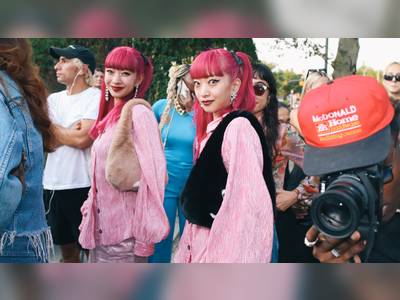The minority ethnic community has grown rapidly over the past five years, with one in 10 adults in the UK of ethnic origin, according to the Office for National Statistics. But, Mintel claims, the beauty industry is failing to meet the needs of modern Britain.
Alexandra Richmond, senior consumer analyst at Mintel, said: "A lack of new product development on the part of manufacturers, as well as limited availability, has undoubtedly been a major barrier in the ethnic beauty market. Today there is clearly a demand for products specifically designed for the growing number of ethnic consumers. Although there are luxury beauty ranges for those with darker skin tones, mass-market alternatives on the high street are still few and far between."
Mintel believes a little investment could turn the ethnic cosmetics and toiletries market into one of the beauty industry's most promising sectors. It forecasts that, with the right investment in new products and advertising, this market could grow by as much as 35% in the next five years, and could be worth £88m by 2012.
Richmond said: "In today's mainstream market we are seeing ever more products targeting very specific beauty needs, from anti-ageing creams for different age groups to shampoos for any number of hair types. There is clearly the potential for the industry to apply this approach to the ethnic beauty market, which would undoubtedly be welcomed by ethnic consumers and give the market a much needed boost."
The market could also benefit from updating its approach to advertising and packaging, the report says. It says the industry spent £150,000 on advertising ethnic products last year. But in 2005 advertising expenditure in the UK on make-up alone was worth £45m, suggesting the ethnic market is under-represented.
Packaging, too, has not kept up with the modern beauty market. Many US ethnic brands were launched in the UK in the 1980s and have barely changed their appearance since.
At the time, the American look was very appealing, with an emphasis on white teeth and big hair. However, this is now widely out of kilter with today's young black and Asian women, the report says.
Richmond said: "Rebranding and repackaging could help ethnic brands compete with mainstream products, not just in terms of winning the ethnic pound, but also by enhancing product credibility."













